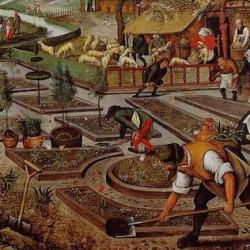In a 1993 article in the Intercollegiate Studies Review , Mark Henrie appeals to Alexander Kojeve to argue that “the differences between social democracy and American liberty are not as great as they may at first appear.”
Kojeve also, he says, captures something “which has certainly been missed in much American thinking on the Left and Right”: “the central issue of modern political life is not one of collectivism versus individualism or central planning versus the market; in each of these cases the poles of opposition exist within the parameters already broadly set by liberal theories of legitimate sovereignty, which are themselves the matter of contention.”
Recognition that modern markets and modern states coexist and cooperate within the same liberal order should shape the way we view the central political battles of modernity:
The “issue in our confrontation with modernity is not state authority, considered as an evil, against the freedom of the market, considered as a good. What Kojeve understood, what the older and especially Continental conservatives understood, and what American conservatives . . . must come to understand is that the liberal state is a cooperative venture between a certain form of political association (democracy) and a certain form of economic association (the market economy) – both founded on an atomized and atomizing individualism. Together these act to ‘rationalize’ society and persons in society. In this analysis, the market is not experienced positively as a realm of unique freedom, but instead is experienced as a realm where uniform laws of rational efficiency act to the end of homogenization and therefore dehumanization. Human goods such as community, solidarity, and indeed, even eccentricity, which are threatened in the process of homogenization, are what conservatives ultimately must be about ‘conserving.’”














